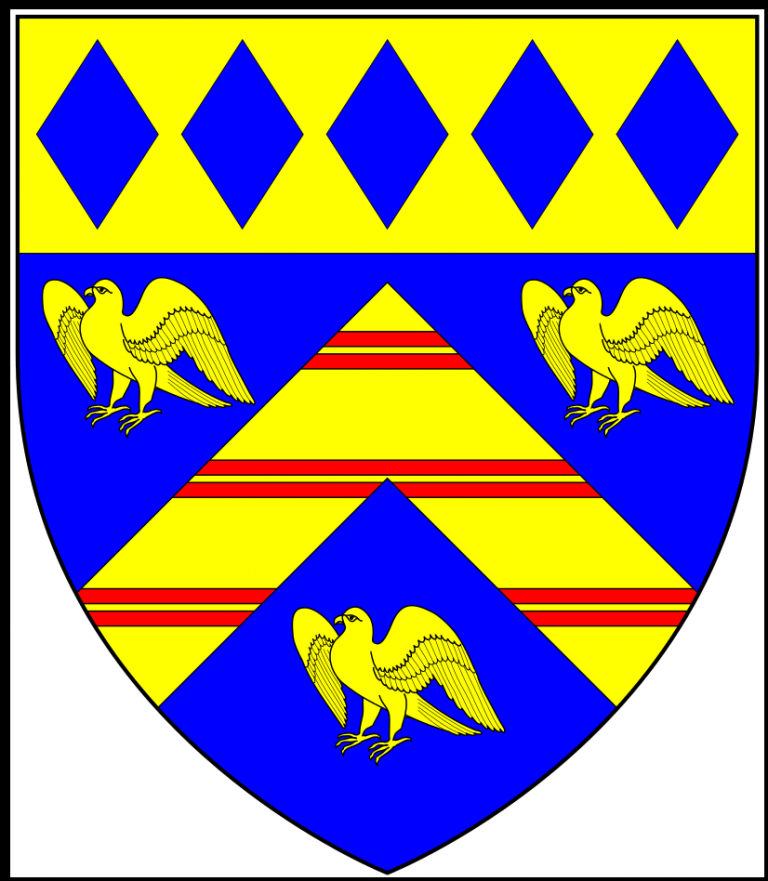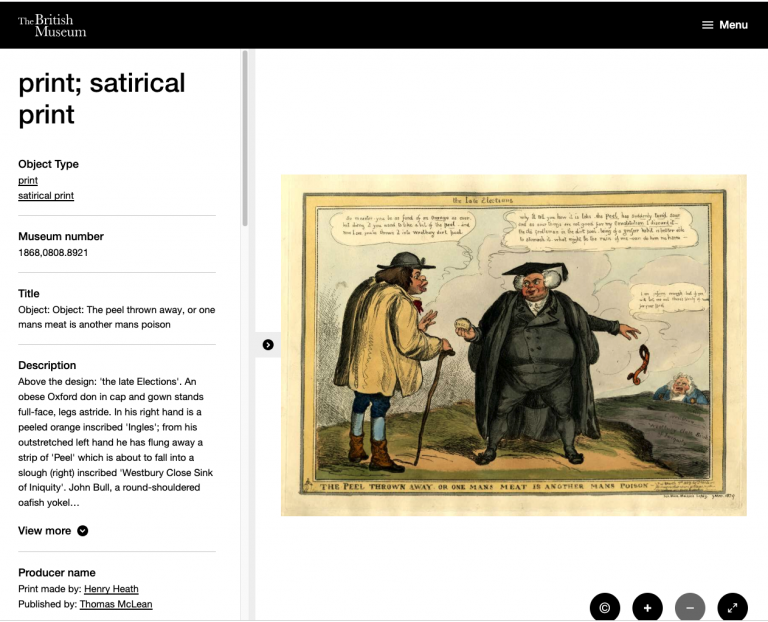“Kosher contribution to the royal wedding
THE wedding of Prince William and Catherine Middleton brought to light another interesting Jewish connection.
The little bridesmaid, Miss Eliza Lopes, is a granddaughter of the Duchess of Cornwall and daughter of Camilla’s daughter, Laura Rose. This little girl is, also, a descendant of two famous Sephardi Jewish families through her father, Harry Marcus George Lopes.
Mordecai Rodriguez Lopes was a member of a family, originating, it is thought, from Cuba and long-time resident of Jamaica. His son, Sir Manasseh Massey Lopes, was created a baronet in 1805. Sir Manasseh had a chequered career as a Member of Parliament, was found guilty of buying votes, unseated by the Commons, and fined and imprisoned in Exeter jail. He resigned his seat of Westbury, in Devon,
but served as a magistrate for Devon and Wiltshire and as Recorder for Westbury.
When he died in 1831, he bequeathed his estate to his nephew, Ralph Franco, the son of his sister, Esther, who assumed the name of Lopes and succeeded to the title.
Sir Ralph Franco Lopes followed his uncle into politics and held the seat of Westbury for many years. His son, Sir Massey Lopes, the third Baron Lopes, became Benjamin Disraeli’s Civil Lord of the Admiralty, another son becoming the first Baron Ludlow, sitting as a judge in the Court of Appeal and as a member of Queen Victoria’s Privy Council.
Camilla’s son-in-law, Harry Lopes, is a direct descendant of Sir Massey Lopes, and thus provides yet another royal link in Jewish history.
Doreen Berger
Stanmore Park, UK”
read the entire article
Berger, Doreen. The Austrialian Jewish News 3 May 2011.
Wikipedia Manasseh Masseh Lopes
https://en.wikipedia.org/wiki/Manasseh_Masseh_Lopes
Born in Jamaica, Lopes was a member of a family of rich Portuguese Sephardic Jews, sugar planters and slave-owners in Jamaica before he migrated to Great Britain.[1] In 1798 he acquired Maristow House near Roborough in Devon, as a new family seat. He also had a town house in Fitzroy Square, Westminster.[2] He had also for many years been investing part of his fortune in acquiring influence in a number of parliamentary boroughs.
By the law as it stood at that period, no member of the Jewish religion could be elected to Parliament. (Many Christian denominations were similarly prohibited.) In 1802, Lopes converted to Christianity, and later the same year he entered Parliament as Tory member for New Romney. He subsequently also represented Evesham from 1807 and Barnstaple from 1812. In 1810, he bought control of the pocket borough of Westbury from Montagu Bertie, 5th Earl of Abingdon when the latter sold the manor of Westbury.[3][4] Westbury was a burgage borough where the right to vote was attached to the ownership of certain properties; Lopes had bought all but two of these “burgage tenements”, giving him the absolute power to name both of Westbury’s MPs. (Unlike bribery, transactions of this sort were perfectly legal.) Between 1814 and 1819, he gave one of those seats to his nephew and heir, Ralph Franco.
Meanwhile, Lopes was exerting his influence in various boroughs on behalf of the government, and in 1805 he was created a baronet, with a special remainder to his nephew Ralph Franco,[5] son of his sister Esther. (Ralph, who inherited the baronetcy on his death, later changed his surname to Lopes). In 1810 he was appointed High Sheriff of Devon.[6]
In 1819, Sir Manasseh was discovered to have bribed the voters in two separate constituencies at the previous year’s general election. Such corruption was common, but reformers were looking for a cause celebre to give prominence to their campaign, and it seems likely that, as a foreign Jew, Lopes was seen as an ideal villain for the purpose. In his own Barnstaple constituency, he was alleged to have spent £3000 on bribing the voters, and after investigation his election was declared void. Meanwhile, at Grampound in Cornwall, although no official protest had been entered against the election result, proceedings had been taken under the criminal law and Lopes was convicted, fined £1000 and jailed for two years. As a result of the scandal, the already notoriously corrupt borough of Grampound was permanently deprived of its right to return MPs. Lopes’ sentence was remitted in September 1820, and he put himself into Parliament at Westbury in a by-election in November.
In 1829, the Duke of Wellington’s Tory government decided to legislate for Catholic Emancipation, a policy which was heretical to their own Ultra-Tory supporters. The Home Secretary, Robert Peel, whose own Oxford University constituency was one of the greatest strongholds of opponents of Catholic Emancipation, felt compelled to resign and fight a by-election to receive a mandate for his change of policy, and was defeated. To allow Peel to return to the Commons in time to move the bill, Lopes vacated his own seat at Westbury and elected Peel in his place. This provoked considerable hostile comment, not least because the government had responded to the Anglican establishment voting against them by acquiring a seat from a Jewish-born borough owner. Lopes reportedly expected to be rewarded for providing his seat at so vital a moment with a peerage, but he was disappointed.
Although Peel had no need of the seat after the general election which came the following year, Lopes did not stand again.”

Massey Lopes, 2nd Baron Roborough
father of Harry Lopes of Eden Renewables
https://en.wikipedia.org/wiki/Massey_Lopes,_2nd_Baron_Roborough
British Museum
https://www.britishmuseum.org/collection/term/BIOG205483
https://www.britishmuseum.org/collection/term/BIOG205483

WikiTree
“1st Baronet Lopes.
Manasseh was born in Jamaica on 27 January 1755, the eldest son of Mordecai Rodriguez Lopes and his wife Rebecca Pereira, Sephardi Jews whose family had left Portugal for Barbados and made a fortune as sugar planters. His father moved the family to England, settling at Clapham.
Manasseh married Charlotte Yeates, daughter of John Yeates, in 1795 and the following year his father died leaving Manasseh a very wealthy man, so wealthy in fact that in 1798 he was able to pay a reputed £100,000 for the Heywood estates in Devon, including Maristow House where he made his home.
In 1802 he converted from Judaism to Anglicanism and entered Parliament as Member for New Romney that same year. He was a supporter of William Pitt and on 1 November 1805 was created a baronet, with special remainder to his nephew, Ralph Franco. By Royal License he assumed the name Masseh Lopes.
It is said that he had quarreled with his patron at New Romney so did not stand for election in 1806 but in 1807 fought Evesham, finished second, but was unseated for procuring illegal votes. He fought the vacancy at Barnstaple in 1812 and was defeated but spent enough money there to be returned at the General Election later in the year. He was involved in the scandal at Grampound in Cornwall where the electorate notoriously sold their votes to the highest bidder and was unseated, taken to court and fined £10,000 and sentenced to two years in Exeter Gaol. His only child, his daughter, Esther, died on 1 July 1819.
Despite his past he was elected Member for Westbury
Manasseh died on 26 March 1831, aged 76.”
https://www.wikitree.com/wiki/Lopes-145
Sugar Plantation
https://www.ucl.ac.uk/lbs/person/view/2146638667
History of Parliment
https://www.historyofparliamentonline.org/volume/1820-1832/member/masseh-lopes-sir-manasseh-1755-1831